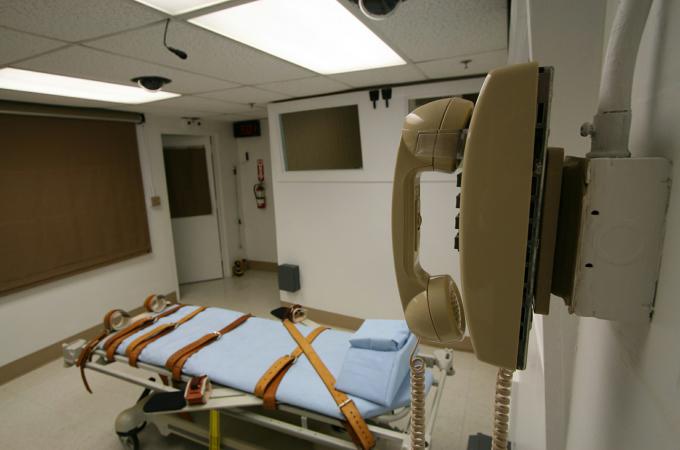Preference for death penalty
Q. My question as a faithful Catholic is this: Is it wrong for me to pray daily and unceasingly for death? I have been in prison now for 25 years. I am so tired of this existence that I am seeking legal action to have my sentence changed from life in prison to the death penalty.
I have always been opposed to capital punishment, but the past few years have made me realize the unbelievable suffering that results from a life term and what a relief death would bring. Nearly every one of my fellow prisoners -- even those on death row -- thinks that execution is much less cruel than life without parole.
I used to believe that God had a job for me to do here in prison, a role to play -- but I've never been able to find it, and the many years in prison have hardened my heart. It is so difficult to be talked about all the time and never really talked to. Is there any help for me? Is there anybody on my side? (Jefferson City, Missouri)
A. I don't see a problem with your praying for death. There are many accounts of saints asking to be taken into the peace of heaven and to be released from the pain of the present life. I think, though, that as a faithful Catholic, you should not be seeking the death penalty.
In October 2017, Pope Francis stated quite clearly that the death penalty "is, in itself, contrary to the Gospel." He said this in a talk marking the 25th anniversary of the publication of the Catechism of the Catholic Church and suggested that the catechism's rejection of the death penalty needs to be stronger and more explicit.
The original text of the catechism in 1992 allowed for the use of the death penalty but said that other means to protect human life should be used whenever possible. Five years later, that language was strengthened to prohibit the use of capital punishment except in those situations where the identity and guilt of the perpetrator were certain and where the death penalty was "the only possible way of effectively defending human lives against the unjust aggressor" (No. 2267).
Now, in his recent October address, Pope Francis has made the church's rejection of the death penalty explicit and total. He said that the death penalty "heavily wounds human dignity," is an "inhuman measure" and extinguishes not only a human life but the possibility that a person will recognize his or her errors, request forgiveness and begin a new life.
More than anything else, though, I would like to respond to your plaintive cry, "Is there any help for me?" I believe that there is. Why not speak to a priest-chaplain or counselor at your prison to help sort out the agony you are experiencing? Perhaps, through God's grace and human guidance, you might be able to play a part in lifting some of the daily burdens of your fellow inmates.
Q. I've heard several different takes on the rules with regard to fasting before receiving Communion. On the one hand, I've been told that we are not to ingest any food or drink within one half-hour of a service. But I've also heard that water or even coffee are not included in this prohibition.
Someone had mentioned to me also that this fasting doesn't apply if there are health issues involved. It seems to me that older parishioners take a stricter view on this and younger parishioners, a more relaxed one. Can you clarify for me what the real rules are? (southern Indiana)
A. The current rules on fasting before holy Communion are simple and clearly expressed in the Code of Canon Law. They provide that one must abstain for one hour from all food and drink, with the exception of water or medicine, prior to receiving the Eucharist (Canon 919).
But that same canon notes that "the elderly, the infirm and those who care for them can receive the most holy Eucharist even if they have eaten something within the preceding hour." Perhaps the fact that these rules have changed several times within my own lifetime may explain why, in your words, there are "several different takes."
For centuries, Catholics were required to abstain from all food and drink (including water) from midnight of the evening before. (Since my family usually went to one of the later Masses on Sunday morning, I can tell you that this rule was something of a challenge.)
In 1953, Pope Pius XII decided that water or medicine no longer broke the fast. Four years later, that same pontiff -- anxious to make the Eucharist more easily available while still wanting to maintain proper reverence for this sacred gift -- reduced the time period; no longer would you have to fast from midnight but, instead, for only three hours.
Then, in 1964, Pope Paul VI reduced it even further -- to only one hour -- and that is still the rule. Note that fasting is required for one hour before the actual reception of Communion, not one hour before the start of Mass. (And note, too, that coffee drinkers do not get a pass; coffee does break the fast!)
- - -
Questions may be sent to Father Kenneth Doyle at askfatherdoyle@gmail.com and 30 Columbia Circle Dr., Albany, New York 12203.
- Father Kenneth Doyle is a columnist for Catholic News Service



















